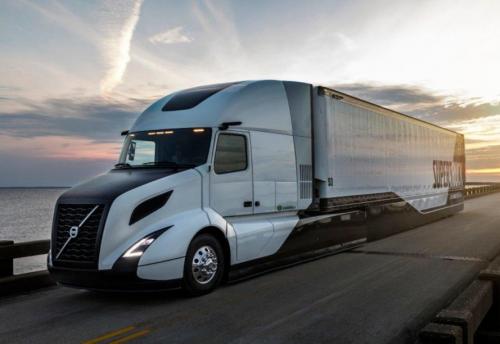Thanks to strained manufacturing supply chains and a booming economy, an unprecedented run of orders for new big rigs has nearly doubled the backlog at truck factories to nine months, according to the Wall Street Journal, citing industry analysts.

North American freight-haulers ordered over 300,000 Class 8 trucks through July of this year, and are on track to order a record 450,000 of the heavy-duty haulers for the full year, according to ACT Research. The surge in demand would be the largest since 2004, when orders reached 390,000.
Meanwhile, the typical backlog is around five months for truck industry manufacturers – the longest wait since early 2006 when truckers stocked up on vehicles before harsh new environmental restrictions kicked in.
“It is longer than it should be,” said Magnus Koeck, vice president of marketing for Volvo AB’s North America operation, where Class 8 truck orders this year soared to 25,000 from 11,000 during the first six months of 2017. “Of course we are not alone in this situation,” he said. “Everyone is in the same boat.” –Wall Street Journal

North American fleets ordered over 52,000 trucks alone in July, an all-time monthly record, in an effort to keep up with swelling demand amid a booming economy and a shortage of drivers.
The orders are coming at a rapid pace as more U.S. companies, from construction equipment makers to retailers, say rising transportation costs and tight truck capacity are crimping their ability to grow and slicing into profit margins. Cass Information Systems Inc., which processes freight payments, says its monthly index of U.S. trucking costs rose more than 10% in July, the first double-digit year-over-year increase in the 13 years of the measure. –Wall Street Journal
Unfortunately for producers, it might be months before trucking capacity can scale up to meet the growing demand for transportation. Because many of the new trucks are aimed at replacing older vehicles, production has been strained. Manufacturers delivered 30,000 new trucks in June, according to ACT – however factories are still playing catch-up after manufacturing supply-chain issues threw a wrench in the gears.












Leave A Comment